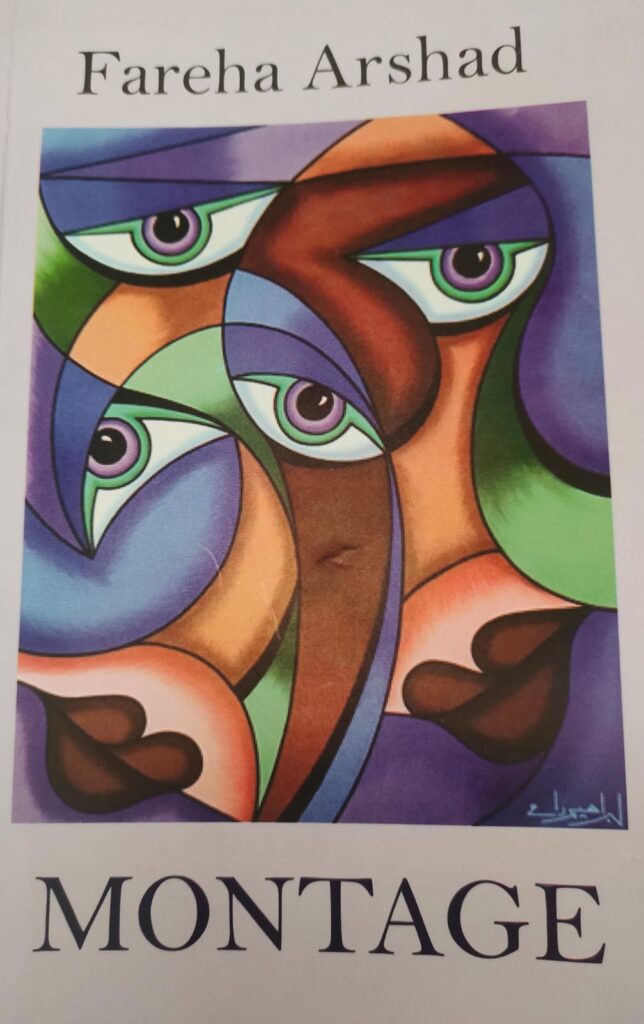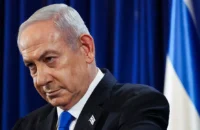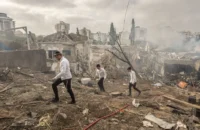Reviewed by: Khalid Mahmood
Yesterday, Khalid Fateh gifted me an English translation of Montage, Fareha Arshad’s debut collection of 13 short stories. Each tale intricately weaves together our shared struggles, blending bathos and pathos in a compelling narrative. I’ve just finished reading one of these heart-wrenching stories, skillfully crafted by Fareha Arshad.
Well, in this short story, Fareha has mobilized her creativity to look into the eyes of gory reality and absurdity in the face without any pretense. Fast backward to the first decade of 21st century, when a barrage of suicide bombers were wreaking havoc, shattering innocent human lives into shredded pieces of flesh. Laboratories were churning death knell in the garb of religious puritanism to train suicide bombers between our geographical terrains and urban crevices.
Although, each short story demands 360 degree critical evaluation but I would consider her short story ” A Son of Soil”. A son of soil at a tender age was catapulted into one of these laboratories and ultimately decides to break free from the talons of death business. Fareha has meticulously painted his escape in the surreal images of hunger, thirst, fatigue and dream to inhabit a peaceful life that resounds like a limitless harrowing sky. The storyline of this particular short story recalls my mind to “Qaid Yagestan Se Frar” by Chaudhary Mohammad Akram of Gujranwala. Unfortunately, as the things are falling apart in our national amnesia, it is hard to find this primer Urdu reportage these days in our libraries. Fareha has created a mosaic of thorny pathways overlapped by the poetic landscapes of liberty and will to survive.
Reading this short story runs a chill down the spine as we watch the bloodbath and genocide on geopolitical chess board these days. Overindulgence and intoxication in unwarranted hubris and lavish upscale lifestyle of the affluence can easily create the illusion that hell is not us but other people.
But existential threats stirred by military industrial complexes are already taking lives of our soldiers on the pickets and political workers on the streets. All dedicated political workers and brave heart soldiers always lay their lives for our shared dream of peace and liberty. Questioning their love for the land and unwavering commitment is like playing cruel hoax with the devoted innocence. They die for our composite safety and better future. Apolitical is political now and it impacts our lives in every aspect.
Fareha’s short story throws light on the current inherent violence of globalization, capitalism, geopolitical designs of destruction.
My favorite Italian novelist and major semiotician Umberto Eco once said, “If by intellectual you mean somebody who works only with his head and not with his hands, then the bank clerk is an intellectual and Michelangelo is not. And today, with a computer, everybody is an intellectual. So I don’t think it has anything to do with someone’s profession or with someone’s social class. According to me, an intellectual is anyone who is creatively producing new knowledge.”
I find this shorty story good enough to move and contemplate on our existential threats that might invoke national unity and coherence among our already tormented masses and indifferent affluent elites.
Fareha has explored the complexities of individual consciousness against the backdrop of a world facing ecological, political, and psychological collapse. Her writing delved into the tensions between personal freedom and societal responsibility, urging readers to confront the deeper anxieties of our existence in a rapidly changing world. Fareha’s fearless examination of the human condition and its vulnerabilities speaks to the existential crisis of our times, offering a mirror to the precariousness of human survival amidst global and domestic upheaval.
As Shakespeare said,” As flies to wanton boys are we to the gods; They kill us for their sport”.
♣



























